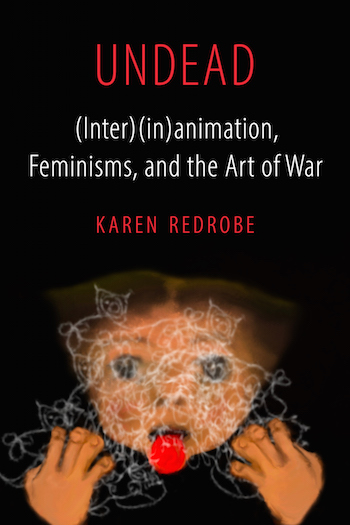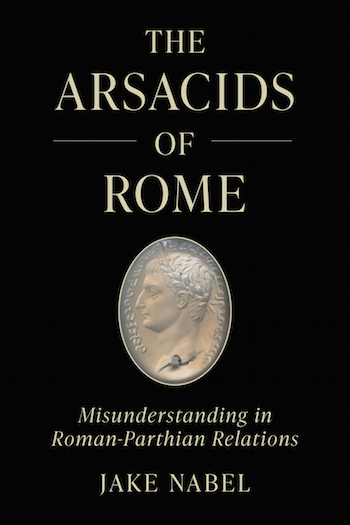



What is the role of the material world in shaping the tensions and paradoxes of imperial sovereignty? Scholars have long shone light on the complex processes of conquest, extraction, and colonialism under imperial rule. But imperialism has usually been cast as an exclusively human drama, one in which the world of matter does not play an active role. Lori Khatchadourian argues instead that things—from everyday objects to monumental buildings—profoundly shape social and political life under empire. Based on the archaeology of ancient Persia and the South Caucasus, Imperial Matter advances powerful new analytical approaches to the study of imperialism writ large and should be read by scholars of empire across the humanities and social sciences.
“This book makes an important contribution in two areas: the first concerns the nature of empire and imperial power; the second is through developing a novel framework for thinking about material culture and empire. This is a work of innovative theory and empirical depth, and there is nothing like it out there.” CHRIS GOSDEN, Professor of Archaeology, Oxford University
“Important, well-written, and elegantly crafted. Lori Khatchadourian’s ability to speak to a diverse audience of anthropologists, archaeologists, and specialists on the Achaemenid Empire demonstrates her impressive intellectual breadth and depth. This is a sophisticated and erudite work.” CARLA SINOPOLI, Professor of Anthropology and Director of the Museum Studies Program, University of Michigan
LORI KHATCHADOURIAN is Assistant Professor of Archaeology in the Department of Near Eastern Studies at Cornell University.

Indefensible Spaces examines the national crisis of the policing of housing through the story of Black community building in the Antelope Valley. Tracing the history of Los Angeles County’s northernmost outpost from its segregated development in the postwar aerospace boom through its evolution into a destination for those priced, policed, and evicted out of Los Angeles, Rahim Kurwa tells the story of how the valley resisted racial integration through the policing of subsidized housing—and how Black tenants and organizers have worked to overcome it. This book sheds light on the intersection of the nation's policing and housing crises, offering powerful lessons for achieving housing justice across the country.

Victoria Wohl is Professor of Classics at the University of Toronto. Her books include Love Among the Ruins: The Erotics of Democracy in Classical Athens, Law’s Cosmos: Juridical Discourse in Athenian Forensic Oratory, and Euripides and the Politics of Form.
The Presocratic philosophers, writing in Greece in the sixth and fifth centuries BCE, invented new ways of thinking about human life, the natural world, and structures of reality. They also developed novel ways of using language to express their thought. In this book, Victoria Wohl examines these innovations and the productive relation between them in the work of five figures: Parmenides, Heraclitus, Empedocles, Anaxagoras, and Democritus.
Bringing these thinkers into conversation with modern critical theorists on questions of shared concern, Wohl argues for the poetic sophistication of their work and the inextricable convergence of their aesthetic form and philosophical content. In addition to offering original readings of these fascinating figures and robust strategies for interpreting their fragmentary, rebarbative texts, this book invites readers to communicate across entrenched divisions between literature and philosophy and between antiquity and modernity.

In Circulations, Courtney Handman examines the surprising continuities in modernist communication discourses that shaped both colonial and decolonial projects in Papua New Guinea. Often described as a place with too many mountains and too many languages to be modern, Papua New Guinea was seen as a space of circulatory primitivity—where people, things, and talk could not move. Colonial missionaries and administrators, and even anticolonial delegations to the United Nations that spearheaded demands for Papua New Guinea’s independence in the 1950s, argued that this circulatory primitivity would only be overcome through the management of communications infrastructures, bureaucratic information flows, and the introduction of English. Innovatively bringing together analyses of communications infrastructures such as radios, airplanes, telepathy, bureaucracy, and lingua francas, Circulations argues for the critical role of communicative networks and communicative imaginaries in political processes of colonialism and decolonization worldwide.

In this book, Dana Simmons explores the enduring production of hunger in US history. Hunger, in the modern United States, became a technology—a weapon, a scientific method, and a policy instrument. During the nineteenth century, state agents and private citizens colluded in large-scale campaigns of ethnic cleansing using hunger and food deprivation. In the twentieth century, officials enacted policies and rules that made incarcerated people, welfare recipients, and beneficiaries of foreign food aid hungry by design, in order to modify their behavior. With the advent of ultraprocessed foods, food manufacturers designed products to stimulate cravings and consumption at the expense of public health. Taking us inside the labs of researchers devoted to understanding hunger as a biological and social phenomenon, On Hunger examines the continuing struggle to produce, suppress, or control hunger in America.

Situated at the crossroads of author Stacie Selmon McCormick’s lived experiences as a Black birthing person, mother, and scholar, We Are Pregnant with Freedom traces Black sexual and reproductive liberation narratives through the storytelling work of those most marginalized in reproductive justice research and discourse. The book traces McCormick’s loss of twin sons to stillbirth, her near-fatal experience with preeclampsia, and her subsequent reproductive justice research and advocacy work with The Afiya Center, a Black-led reproductive justice organization in Texas. Its multidisciplinary narrative shatters the silences wrought by stigma and historical erasure, ultimately proposing a new grammar of reproductive justice that can serve the people as a vehicle for community building, healing, and bodily liberation.

Today, Morocco’s hip hop artists are vital to their country’s reputation as diverse, creative, and modern. But in the 1990s and 2000s, teenage amateurs shaped their craft and ideals together as the profound socioeconomic changes of neoliberalization swept through their neighborhoods. Values That Pay traces Moroccan hip hop’s trajectory from sidewalk cyphers and bedroom studios to royal commendations and international festivals. Kendra Salois draws from more than ten years of research into her interlocutors’ music and moral reasoning to frame this institutionalization around the constitutive tensions of hip hop aesthetics and neoliberal life. Entrepreneurial artists respond to their unavoidable complicity with an extractive state through aesthetic and interpersonal sincerity, educating their fans on the risks and responsibilities of contemporary citizenship. Salois argues that over the past forty years, Moroccan hip hop practitioners have transformed not only themselves but also what it means to be an ethical citizen in a deeply unequal nation.

Despite the massive costs associated with data breaches, ransomware, viruses, and cyberattacks, most organizations remain thoroughly unprepared to safeguard consumer data. Over the past two decades, the insurance industry has begun offering cyber insurance to help organizations manage cybersecurity and privacy law compliance, while also offering risk management services as part of their insurance packages. These insurers have thus effectively evolved into de facto regulators—yet at the same time, they have failed to effectively curtail cybersecurity breaches. Drawing from interviews, observations, and extensive content analysis of the cyber insurance industry, this book reveals how cyber insurers’ risk management services convey legitimacy to the public and to insureds but fall short of actually improving data security, rendering them largely symbolic. Speaking directly to broader debates on regulatory delegation to nonstate actors, Shauhin A. Talesh proposes a new institutional theory of insurance to explain how insurers shape the content and meaning of privacy law and cybersecurity compliance, offering policy recommendations for how insurers and governments can work together to improve cybersecurity and foster greater algorithmic justice.

What does everyday life look like for young men who flee to Europe, survive, and are then assigned temporary housing? Hypersurveillance or parallel normality, irrelevance or even nothingness? Based on a four-year ethnography, Undoing Nothing recounts the untold story of Italian asylum seekers' struggles to produce relevance—that is, to carve out meaning, control, and direction from their legal and existential liminality. Their ways of inhabiting space and time rest on a deeply ambivalent position: together and alone, inside and outside, absent and present. They dwell as racialized bodies in the center while their selves inhabit a suspended trans-local space of moral economies, nightmares, and furtive dreams. This book illuminates a distinctly modern form of purgatory, offering both a perceptive critique of state responses to the so-called refugee crisis and nuanced psychological portraits of a demographic rarely afforded narrative depth and grace.

Immigrant residents seeking legal status in the United States face a catch-22: the documents that they must present to immigration officials—bank records, paycheck stubs, and contracts in their own names—are often challenging for undocumented people to obtain. In this book, Susan Bibler Coutin analyzes how undocumented immigrants and the attorneys and paralegals who represent them attempt to surmount this and other documentary challenges. Based on four years of fieldwork and volunteer work in the legal services department of an immigrant-serving nonprofit and in-depth interviews with those seeking status, On the Record explores these complex dynamics by taking seriously both documents themselves and the legal craft that has developed around their use.

Moorings follows sailors from the Gulf of Kachchh in India as they voyage across the ocean on mechanized wooden sailing vessels known as vahans, or dhows. These voyages produce capital through moorings that are spatial, moral, material, and conceptual. With a view from the dhow, the book examines the social worlds of Muslim seafarers who have been rendered invisible even as they maneuver multiple regulatory regimes and the exigencies of life, navigating colonialism, neoliberalism, the rise of Hindutva, insurgency, climate change, and border regimes across the Indian Ocean. Based on historical and ethnographic research aboard ships, at ports and religious shrines, and in homes, Moorings shows how capitalism derives value from historically sedimented practices grounded in caste, gender, and transregional community-based forms of regulation.

Leftover Women in China offers an intimate empirical and theoretical analysis of the lived experience and legal consciousness of China’s “leftover women,” women who remain unmarried in their late twenties and beyond. Drawing on in-depth interviews and focus groups, Qian Liu examines how leftover women—including women who prefer to remain single, those who are waiting for the right husband, and queer women—deal with parental and social pressure, as well as the denial of their right to have children outside of heterosexual marriage. Sensitively exploring the distinctive patterns of parent-child interactions in Chinese families, Liu invites readers to understand leftover women’s observance, evasion, and manipulation of the law in the context of intergenerational relationships and obligations.

This book examines the spaces, practices, and ideologies of incarceration in the ancient Mediterranean world, covering the period from 300 BCE to 600 CE. By analyzing a wide range of sources—including legal texts, archaeological findings, documentary evidence, and visual materials—Matthew D. C. Larsen and Mark Letteney argue that prisons were integral to the social, political, and economic fabric of ancient societies. Ancient Mediterranean Incarceration traces the long history of carceral practices, considering the ways in which the prison has been fundamentally intertwined with issues of class, ethnicity, gender, and imperialism for over two millennia. By foregrounding the voices and experiences of the incarcerated, Larsen and Letteney demonstrate the extraordinary durability of carceral structures across time, and call for new historical consciousness to arise around contemporary practices of incarceration.

Industrial Islamism analyzes the relationship, since the end of the Cold War, between the rise of political Islamism in Muslim-majority countries and the rise of a new global "middle class" of industrial entrepreneurs. Challenging common assumptions, Utku Balaban questions the idea that political Islamism represents the antithesis of Western modernity and industrialization. On the contrary: the more enthusiastically a Muslim-majority country industrializes, the more "Islamized" its politics becomes.
The book focuses on Turkey, historically the most industrialized Muslim-majority country in the world, with the most successful Islamist movement and a relatively competitive electoral system. It provides a fine-grained historical and ethnographic analysis at the local level of urban-industrial control over workers in sweatshops and working-class neighborhoods by this new global middle class, whom Balaban calls the faubourgeoisie. As the central actor behind Turkey's post–Cold War industrialization, the faubourgeoisie allies with the Islamist movement to control its workers and significantly influence national politics.

Kathryn Henne is a professor in the School of Regulation and Global Governance at The Australian National University, where she directs the Justice and Technoscience Lab, and an adjunct professor in the College of Health Solutions at Arizona State University.
Matt Ventresca is a researcher in the School of History and Sociology at Georgia Institute of Technology and a visiting fellow in the School of Regulation and Global Governance at The Australian National University.
Concerns regarding brain injury in sport have escalated into what is often termed a “concussion crisis,” fueled by high-profile lawsuits and deaths. Although athletes are central figures in this narrative, they comprise only a small proportion of the people who experience brain injuries, while other high-risk groups—including victims of domestic violence and police brutality—are all too often left out of the story. In Violent Impacts, Kathryn Henne and Matt Ventresca examine what is and isn’t captured in popular discourse, scrutinizing how law, science, and social inequalities shape depictions and understandings of brain injury. Drawing on research carried out in Australia, Canada, and the United States, they illustrate how structural violence centers certain bodies as part of the concussion crisis while pushing others to the margins.

Focusing on the provision of gender-affirming care, Health Care Civil Rights analyzes the difficulties and potential of discrimination law in healthcare settings. The application of civil rights law could be a powerful response to health inequalities in the U.S., but conservative challenges and the complex and fragmented nature of our health care system have limited the real-world success of this strategy. Revealing deep divides and competing interests that reverberate through patient experiences, insurance claims, and courtroom arguments, Anna Kirkland explains what health care civil rights are, how they work in theory and practice, and how to strengthen them.

Undead examines the visual culture of war, broadly understood, through the lens of animation. Focusing on works in which relational, intermedial, and variably paced practices of “(inter)(in)animation” generate aesthetic tactics for thinking about, feeling, and reframing war, Karen Redrobe analyzes works by artists including Yael Bartana, Nancy Davenport, Kelly Dolak and Wazhmah Osman, Gesiye, David Hartt, Helen Hill, Onyeka Igwe, Maryam Mohajer, Ibrahim Nasrallah, Mary Reid Kelley, and Patrick Kelley. Deftly moving between cinema and media studies, peace and conflict studies, and art history, Undead is an interdisciplinary feminist meditation on the complex relationship between states of war and the discourses, infrastructures, and institutions through which memory, change, and understanding are made.

At the beginning of the common era, the two major imperial powers of the ancient Mediterranean and Near East were Rome and Parthia. In this book, Jake Nabel analyzes Roman-Parthian interstate politics by focusing on a group of princes from the Arsacid family—the ruling dynasty of Parthia—who were sent to live at the Roman court. Although Roman authors called these figures “hostages” and scholars have studied them as such, Nabel draws on Iranian and Armenian sources to argue that the Parthians would have seen them as the emperor's foster children. These divergent perspectives allowed each empire to perceive itself as superior to the other, since the two sides interpreted the exchange of royal children through conflicting cultural frameworks. Moving beyond the paradigm of great powers in conflict, The Arsacids of Rome advances a new vision of interstate relations with misunderstanding at its center.